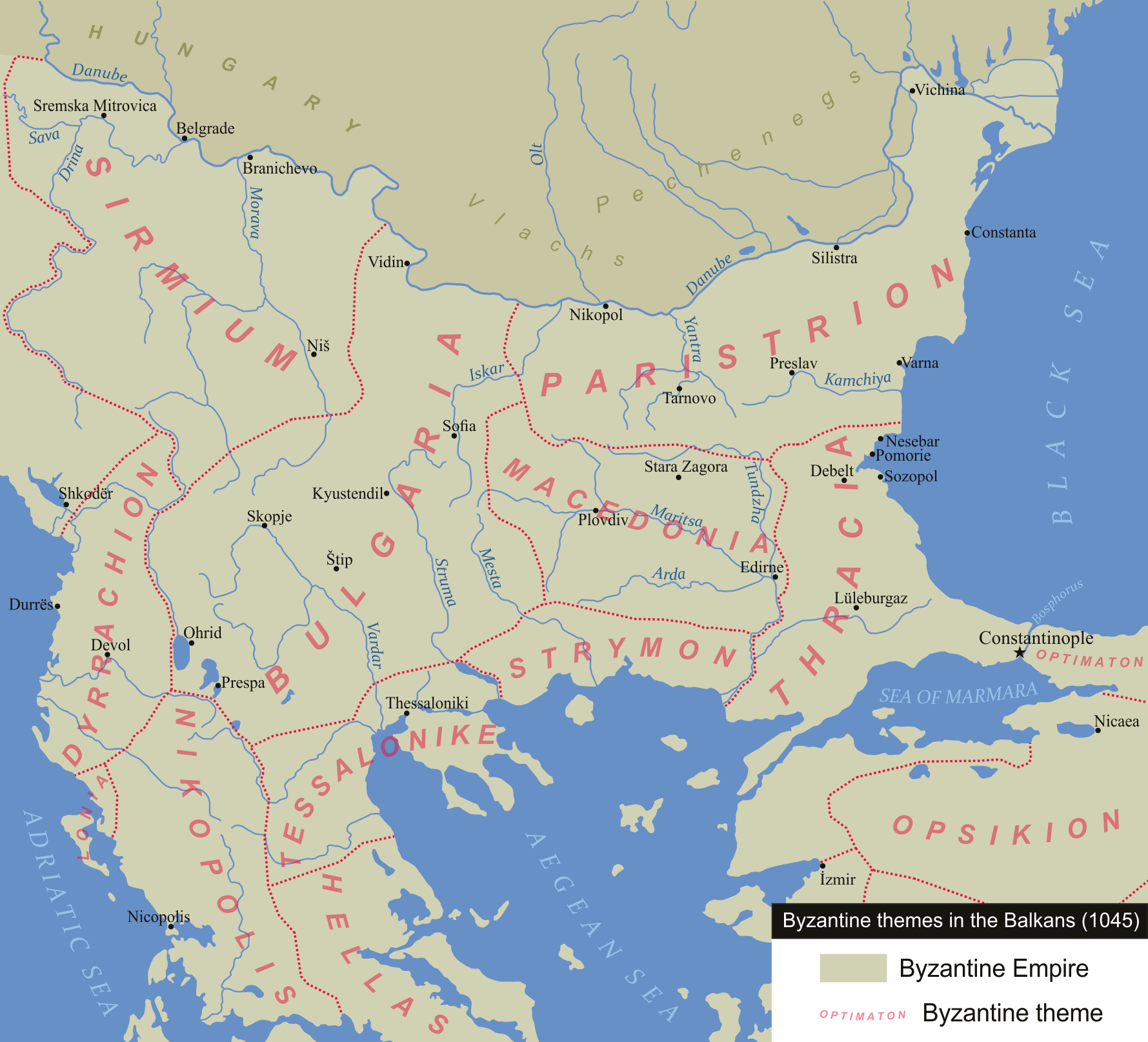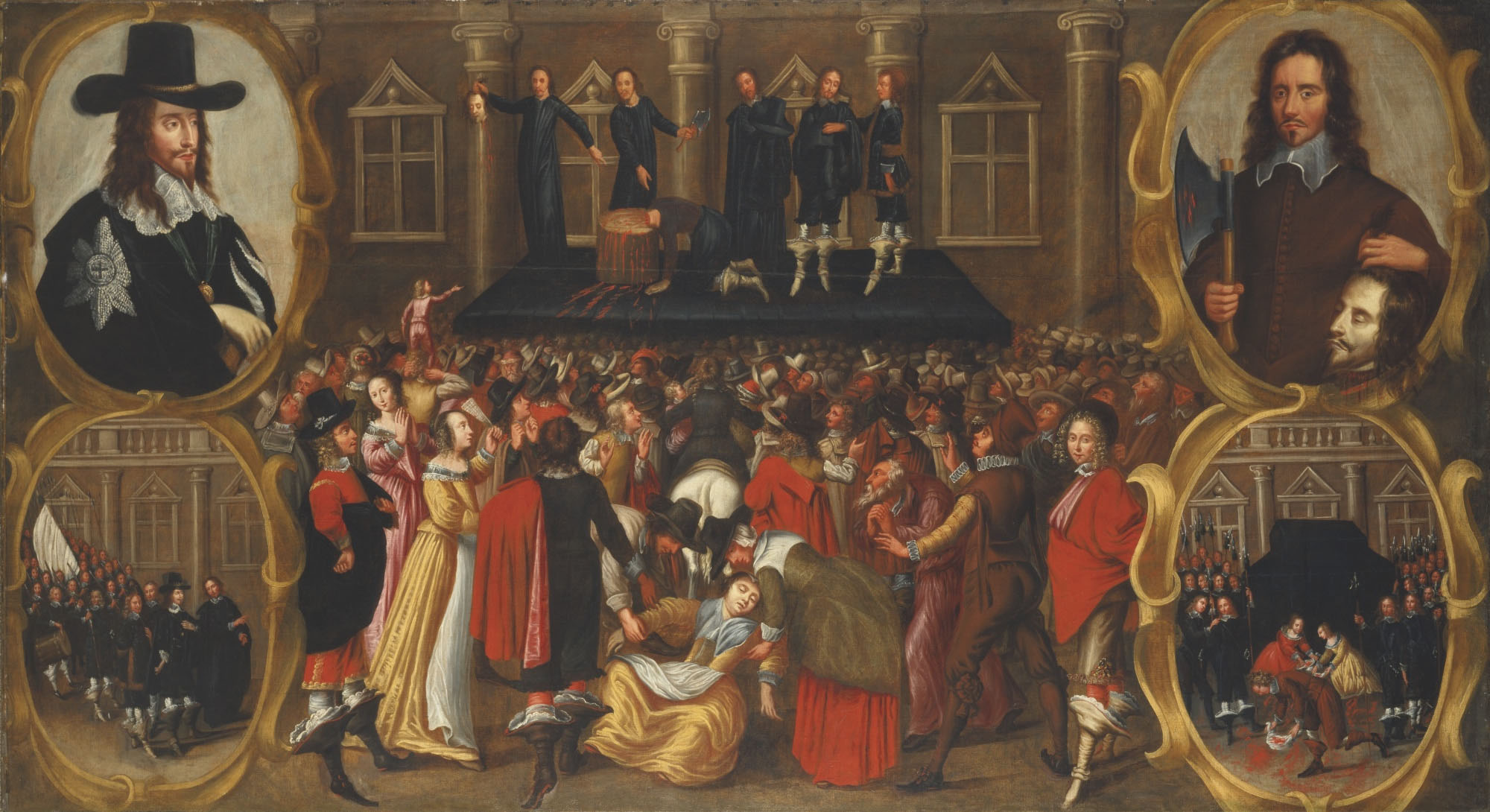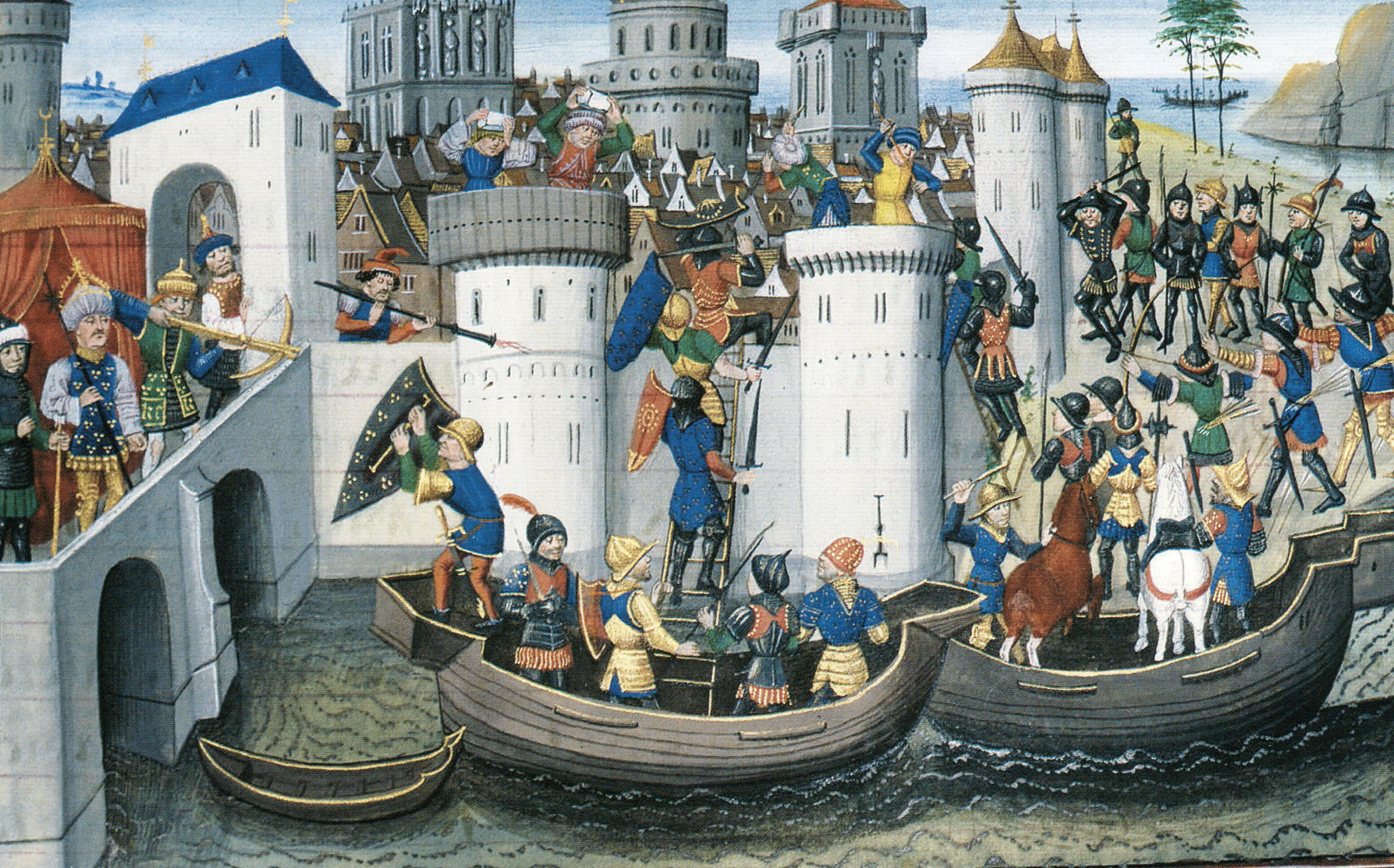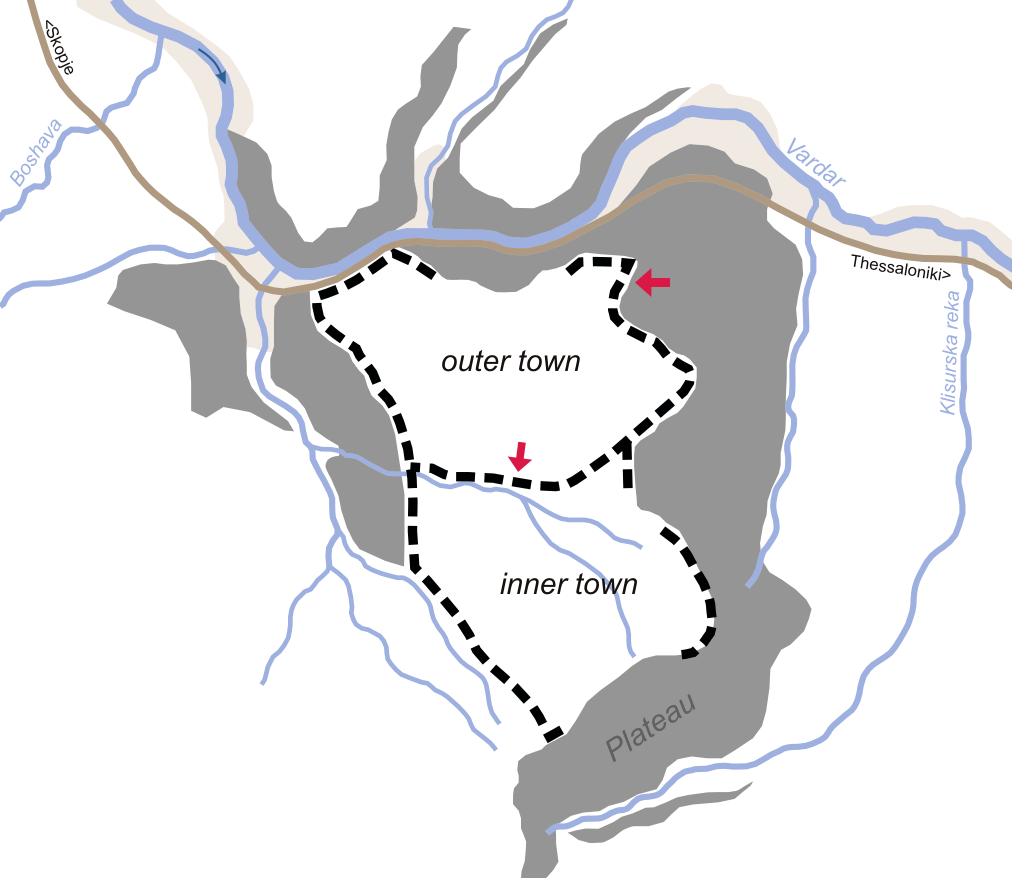|
Ivanko Of Bulgaria
Ivanko ( bg, Иванко) killed Ivan Asen I, ruler of the renascent Second Bulgarian Empire, in 1196. The murder occurred when Asen angrily summoned Ivanko to discipline him for having an affair with his wife's sister. In 1197 Ivanko, who was a Vlach according to the terminology used by Niketas Choniates, married Theodora Angelina, the daughter of Anna Angelina and the ''sebastokrator'' Isaac Komnenos. Theodora's father had died in Bulgarian captivity not many months earlier. Ivanko, who adopted the Greek name Alexios, fought at first for his grandfather-in-law, the Byzantine emperor Alexios III Angelos Alexios III Angelos ( gkm, Ἀλέξιος Κομνηνός Ἄγγελος, Alexios Komnēnos Angelos; 1211), Latinized as Alexius III Angelus, was Byzantine Emperor from March 1195 to 17/18 July 1203. He reigned under the name Alexios Komnen ..., but afterwards turned against him. He captured the general Manuel Kamytzes in 1198; Kamytzes was ransomed by his son-in-law, ... [...More Info...] [...Related Items...] OR: [Wikipedia] [Google] [Baidu] |
Ivan Asen I
Ivan Asen I, also known as Asen I or John Asen I ( bg, Иван Асен I; died in 1196), was emperor or tsar of Bulgaria from 1187/1188 to 1196 as co-ruler with his elder brother, Peter II. Hailing from the Byzantine theme of Paristrion, his exact place and date of birth are unknown. Although most contemporaneous chronicles describe Asen and his brothers, Theodor (Peter) and Kaloyan, as Vlachs, they were probably of mixed Vlach, Bulgarian, and Cuman ancestry. In 1185, Asen and Theodor went to see the Byzantine Emperor Isaac II Angelos in Thrace to demand an estate in the Balkan Mountains. After the Emperor refused and humiliated them, the brothers persuaded their Bulgarian and Vlach compatriots to rise up against the Byzantine Empire. Before the end of the year, Theodor was crowned Emperor of Bulgaria, taking the name Peter. After Isaac II defeated them in early 1186, Asen and Peter fled north over the Danube but returned in the autumn, accompanied by Cuman reinforcements. ... [...More Info...] [...Related Items...] OR: [Wikipedia] [Google] [Baidu] |
Alexios Palaiologos (Despot)
Alexios Palaiologos ( gr, Ἀλέξιος Παλαιολόγος; died 1203) was a Byzantine nobleman, son-in-law of Emperor Alexios III Angelos () and his heir apparent from 1199 to his death. Throughout this time, he was actively involved in the suppression of several revolts and riots against the emperor. Through his daughter, he became one of the progenitors of the Palaiologan dynasty (1261–1453). Life Although the Palaiologos family was wealthy and mostly known as civil and military officials under the Komnenian emperors, Alexios's own origins are obscure. Alexios's father was probably the ''sebastos'' and '' megas hetaireiarches'' George Palaiologos, the son or grandson of Alexios I Komnenos's staunchest supporter, George Palaiologos. Through his grandmother, Alexios shared in the blood of the Komnenian house. In 1199, Alexios was chosen by Emperor Alexios III, who was without male offspring, to wed his eldest daughter, Irene. She was a widow of Andronikos Kontostephanos, an ... [...More Info...] [...Related Items...] OR: [Wikipedia] [Google] [Baidu] |
Bulgarian People Of The Byzantine–Bulgarian Wars
Bulgarian may refer to: * Something of, from, or related to the country of Bulgaria * Bulgarians, a South Slavic ethnic group * Bulgarian language, a Slavic language * Bulgarian alphabet * A citizen of Bulgaria, see Demographics of Bulgaria * Bulgarian culture * Bulgarian cuisine, a representative of the cuisine of Southeastern Europe See also * * List of Bulgarians, include * Bulgarian name, names of Bulgarians * Bulgarian umbrella, an umbrella with a hidden pneumatic mechanism * Bulgar (other) * Bulgarian-Serbian War (other) The term Bulgarian-Serbian War or Serbian-Bulgarian War may refer to: * Bulgarian-Serbian War (839-842) * Bulgarian-Serbian War (853) * Bulgarian-Serbian wars (917-924) * Bulgarian-Serbian War (1330) * Bulgarian-Serbian War (1885) * Bulgarian-Serbi ... {{disambiguation Language and nationality disambiguation pages ... [...More Info...] [...Related Items...] OR: [Wikipedia] [Google] [Baidu] |
Regicides
Regicide is the purposeful killing of a monarch or sovereign of a polity and is often associated with the usurpation of power. A regicide can also be the person responsible for the killing. The word comes from the Latin roots of ''regis'' and ''cida'' (''cidium''), meaning "of monarch" and "killer" respectively. In the British tradition, it refers to the judicial execution of a king after a trial, reflecting the historical precedent of the trial and execution of Charles I of England. The concept of regicide has also been explored in media and the arts through pieces like ''Macbeth'' (Macbeth's killing of King Duncan) and ''The Lion King''. History In Western Christianity, regicide was far more common prior to 1200/1300. Sverre Bagge counts 20 cases of regicide between 1200 and 1800, which means that 6% of monarchs were killed by their subjects. He counts 94 cases of regicide between 600 and 1200, which means that 21.8% of monarchs were killed by their subjects. He argues t ... [...More Info...] [...Related Items...] OR: [Wikipedia] [Google] [Baidu] |
13th-century Bulgarian People
The 13th century was the century which lasted from January 1, 1201 ( MCCI) through December 31, 1300 ( MCCC) in accordance with the Julian calendar. The Mongol Empire was founded by Genghis Khan, which stretched from Eastern Asia to Eastern Europe. The conquests of Hulagu Khan and other Mongol invasions changed the course of the Muslim world, most notably the Siege of Baghdad (1258), the destruction of the House of Wisdom and the weakening of the Mamluks and Rums which, according to historians, caused the decline of the Islamic Golden Age. Other Muslim powers such as the Mali Empire and Delhi Sultanate conquered large parts of West Africa and the Indian subcontinent, while Buddhism witnessed a decline through the conquest led by Bakhtiyar Khilji. The Southern Song dynasty would begin the century as a prosperous kingdom but would eventually be invaded and annexed into the Yuan dynasty of the Mongols. The Kamakura Shogunate of Japan would be invaded by the Mongols. Goryeo resiste ... [...More Info...] [...Related Items...] OR: [Wikipedia] [Google] [Baidu] |
12th-century Bulgarian People
1 (one, unit, unity) is a number representing a single or the only entity. 1 is also a numerical digit and represents a single unit of counting or measurement. For example, a line segment of ''unit length'' is a line segment of length 1. In conventions of sign where zero is considered neither positive nor negative, 1 is the first and smallest positive integer. It is also sometimes considered the first of the infinite sequence of natural numbers, followed by 2, although by other definitions 1 is the second natural number, following 0. The fundamental mathematical property of 1 is to be a multiplicative identity, meaning that any number multiplied by 1 equals the same number. Most if not all properties of 1 can be deduced from this. In advanced mathematics, a multiplicative identity is often denoted 1, even if it is not a number. 1 is by convention not considered a prime number; this was not universally accepted until the mid-20th century. Additionally, 1 is the s ... [...More Info...] [...Related Items...] OR: [Wikipedia] [Google] [Baidu] |
12th-century Murderers
1 (one, unit, unity) is a number representing a single or the only entity. 1 is also a numerical digit and represents a single unit of counting or measurement. For example, a line segment of ''unit length'' is a line segment of length 1. In conventions of sign where zero is considered neither positive nor negative, 1 is the first and smallest positive integer. It is also sometimes considered the first of the infinite sequence of natural numbers, followed by 2, although by other definitions 1 is the second natural number, following 0. The fundamental mathematical property of 1 is to be a multiplicative identity, meaning that any number multiplied by 1 equals the same number. Most if not all properties of 1 can be deduced from this. In advanced mathematics, a multiplicative identity is often denoted 1, even if it is not a number. 1 is by convention not considered a prime number; this was not universally accepted until the mid-20th century. Additionally, 1 is ... [...More Info...] [...Related Items...] OR: [Wikipedia] [Google] [Baidu] |
13th-century Deaths
The 13th century was the century which lasted from January 1, 1201 ( MCCI) through December 31, 1300 ( MCCC) in accordance with the Julian calendar. The Mongol Empire was founded by Genghis Khan, which stretched from Eastern Asia to Eastern Europe. The conquests of Hulagu Khan and other Mongol invasions changed the course of the Muslim world, most notably the Siege of Baghdad (1258), the destruction of the House of Wisdom and the weakening of the Mamluks and Rums which, according to historians, caused the decline of the Islamic Golden Age. Other Muslim powers such as the Mali Empire and Delhi Sultanate conquered large parts of West Africa and the Indian subcontinent, while Buddhism witnessed a decline through the conquest led by Bakhtiyar Khilji. The Southern Song dynasty would begin the century as a prosperous kingdom but would eventually be invaded and annexed into the Yuan dynasty of the Mongols. The Kamakura Shogunate of Japan would be invaded by the Mongols. Goryeo res ... [...More Info...] [...Related Items...] OR: [Wikipedia] [Google] [Baidu] |
12th-century Births
1 (one, unit, unity) is a number representing a single or the only entity. 1 is also a numerical digit and represents a single unit of counting or measurement. For example, a line segment of ''unit length'' is a line segment of length 1. In conventions of sign where zero is considered neither positive nor negative, 1 is the first and smallest positive integer. It is also sometimes considered the first of the infinite sequence of natural numbers, followed by 2, although by other definitions 1 is the second natural number, following 0. The fundamental mathematical property of 1 is to be a multiplicative identity, meaning that any number multiplied by 1 equals the same number. Most if not all properties of 1 can be deduced from this. In advanced mathematics, a multiplicative identity is often denoted 1, even if it is not a number. 1 is by convention not considered a prime number; this was not universally accepted until the mid-20th century. Additionally, 1 is ... [...More Info...] [...Related Items...] OR: [Wikipedia] [Google] [Baidu] |
Theodore I Laskaris
Theodore I Laskaris or Lascaris ( gr, Θεόδωρος Κομνηνὸς Λάσκαρις, Theodōros Komnēnos Laskaris; 1175November 1221) was the first emperor of Nicaea—a successor state of the Byzantine Empire—from 1205 to his death. Although he was born to an obscure aristocratic family, his mother was related to the imperial Komnenos clan. He married Anna, a younger daughter of Emperor Alexios III Angelos in 1200. He received the title of despot before 1203, demonstrating his right to succeed his father-in-law on the throne. The Fourth Crusade forced AlexiosIII to flee from Constantinople in 1203. Theodore was imprisoned by the crusaders (commonly referred to as "Latins" by the Byzantines), but he escaped. After crossing the Bosporus into Asia Minor (in present-day Turkey), he started to organise the local Greeks' resistance against the Latins in Bithynia in his father-in-law's name. He concluded an alliance with the Seljuq sultan of Rum, but he could ... [...More Info...] [...Related Items...] OR: [Wikipedia] [Google] [Baidu] |
Dobromir Chrysos
Dobromir, known to the Byzantines as Chrysos ( mk, Добромир Хрс, bg, Добромир Хриз, el, Δοβρομηρός Χρύσος), was a leader of the Vlachs and Bulgarian Slavs in eastern Macedonia during the reign of the Byzantine emperor Alexios III Angelos. According to Niketas Choniates, Dobromir Chrysos was, despite his Slavic name, a "Vlach" (an Aromanian or Megleno-Romanian) by birth. However, most probably he was of mixed Slavic–Vlach origins. Due to the complexity of pre-nationalist ethnic labels, references to modern ethnic groups in the Middle ages are obscure.John V. A. (Jr.) Fine, When Ethnicity Did Not Matter in the Balkans: A Study of Identity in Pre-Nationalist Croatia, Dalmatia, and Slavonia in the Medieval and Early-Modern Periods, University of Michigan Press, 2010; , p. 56. He became prominent in 1197 and is last heard of in 1202. He was already married, but in order to cement an alliance with him the Emperor offered him a daughter of th ... [...More Info...] [...Related Items...] OR: [Wikipedia] [Google] [Baidu] |
Second Bulgarian Empire
The Second Bulgarian Empire (; ) was a medieval Bulgarian state that existed between 1185 and 1396. A successor to the First Bulgarian Empire, it reached the peak of its power under Tsars Kaloyan and Ivan Asen II before gradually being conquered by the Ottomans in the late 14th century. Until 1256, the Second Bulgarian Empire was the dominant power in the Balkans, defeating the Byzantine Empire in several major battles. In 1205, Emperor Kaloyan defeated the newly established Latin Empire in the Battle of Adrianople. His nephew Ivan Asen II defeated the Despotate of Epiros and made Bulgaria a regional power again. During his reign, Bulgaria spread from the Adriatic to the Black Sea and the economy flourished. In the late 13th century, however, the Empire declined under constant invasions by Mongols, Byzantines, Hungarians, and Serbs, as well as internal unrest and revolts. The 14th century saw a temporary recovery and stability, but also the peak of Balkan feudalism as centr ... [...More Info...] [...Related Items...] OR: [Wikipedia] [Google] [Baidu] |






